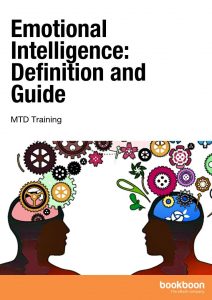Emotional intelligence: definition and why it’s important in the workplace


The word is out about emotional intelligence. Companies who once focused only on where their new hires went to university have learned that IQ alone isn’t going to make them successful. The way employees conduct themselves, the way they express themselves, and the way they interact with others are all as important if not more important than the person’s score on an intelligence test.
What is emotional intelligence?
Emotional Intelligence or EQ is one’s ability to be aware of their own emotions as well as the emotions of others and to use that knowledge to help manage the expression of emotions. It is also the capacity to handle interpersonal relationships judiciously and empathetically.
Why is emotional intelligence important in a workplace?
Emotional intelligence saves money
Hiring employees with high EQ gives organisations a better chance of hiring the right people the first time and reduces employee turnover, resulting in significant cost savings. An example of this comes from the experience of the US Air Force. When hiring recruiters, the government used an emotional intelligence test as part of the process. They found that the recruiters who performed the best were the ones that had scored the highest on the EQ test – particularly in the competencies of emotional self-awareness, empathy, happiness, and assertiveness.
Emotionally intelligent people make great leaders
Study after study proves that the best, most successful leaders have higher developed EQ than others. Not only that, but they are more likely to stick around than those who haven’t had EQ training – representing cost savings as well. And when a leader does fail, it can usually be attributed to a lack of emotional competence.
Emotional intelligence makes for a safer, happier workplace
Another study showed that EQ could have an impact on safety and labor relations in a manufacturing environment. In one plant, supervisors were trained in EQ competencies related to listening to employees and helping them have the self-confidence to solve problems on their own. The results were impressive – and possibly unexpected. Formal grievances reduced by 80 percent, the plant passed their production goals by a quarter of a million dollars, and lost-time accidents were cut in half.
Check out more case studies and new information about the hot topic of Emotional Intelligence in our free eBook, Emotional Intelligence: Definition and Guide.




